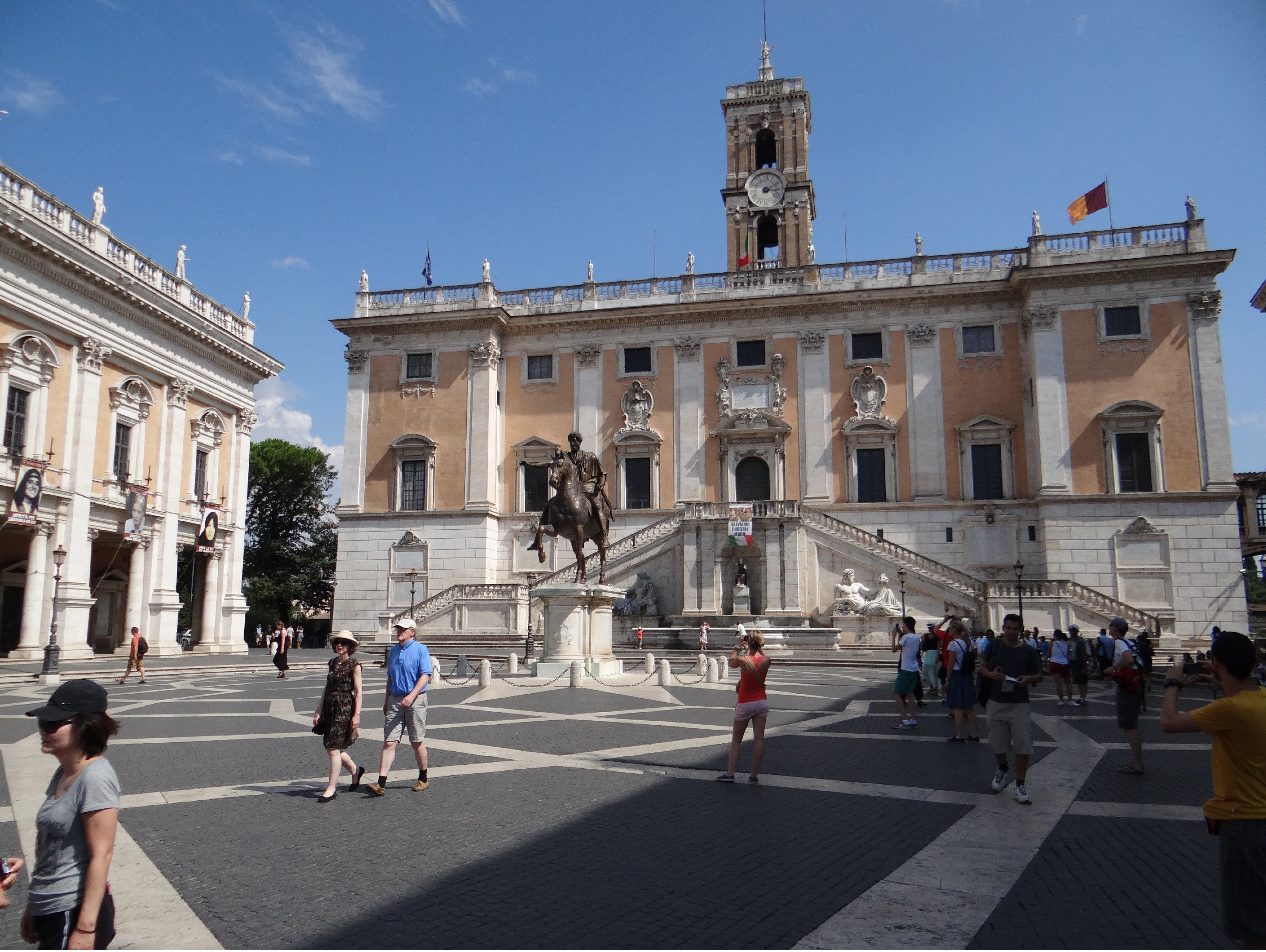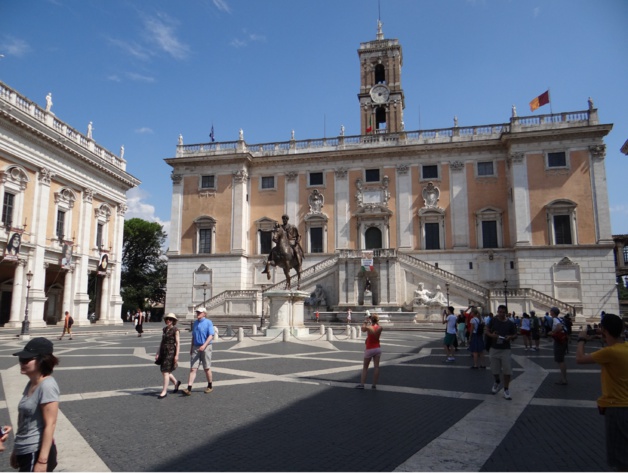During the last two weeks, the partial election took on the strategic and symbolic issues for the Italian political parties in a context of a gradual questioning of Matteo Renzi’s policy, President of the Council from the Democratic Party (Partito Democrativo). The number of municipalities concerned (1,342) and the fact that city councils of 25 provincial county towns and 7 regional county towns were at stake made these elections an important vote for the future of the Italian political framework.
SERIOUS DEFEATS FOR THE DEMOCRATIC PARTY (PD) AND VICTORY FOR THE 5-STAR MOVEMENT
On Sunday 19th of June, following the counting, the attention was on Turin and especially Rome where the candidates of the Five Star Movement won the election against the Democratic party. The winning party is a movement launched in 2009 by the comedian Beppe Grillo, whose political agenda draws on both left-wing and right-wing ideas and is regularly considered as populist by its political opponents. Virginia Raggi in Rome and Chiara Appendino in Turin ran their campaigns well and consequently won the municipal elections for Italy’s two most important city councils. The most striking victory was in Rome where Virginia Raggi win the capital city with more than 67% of votes against Roberto Giacchetti (representing the Democratic Party). While the victory of Virginia Raggi in Rome seemed unavoidable, the success of Chiara Appendino in Turin sprung a surprise within this historic bastion of the centre-left. The 5SM asserts itself as shown by Alessandro di Battista who declared on Channel 7 following the Roman results: “Henceforth we are considered as a credible governmental power. We triumphantly won the elections and we will not betray voters’ trust.”
The centre-left is in a critical situation against its traditional centre-right and right-wing opponents. The party lost nine municipalities to the centre-right including Brindisi and Trieste, only wining back Caserta and Varese. However, the right-wing is struggling to unify itself in the whole territory, partly explaining its absence in the second round in Rome. Nevertheless, the DP has succeeded in maintaining its hold over important cities like Milan, the economic capital, or Bologna, county town of Emilia-Romagna.
DISTRUST TOWARDS THE POLITICAL CLASS AND HIGH ABSTENTION RATE
Once again the abstention rate in Italy was high, with 59.94% turnout during the first round and a decrease of 50.52% in the second round. The elections started amidst a context of mistrust regarding policies which seem to be taking root after many years of an increasing absenteeism and an increasing rejection of politics for many Italians. This is the consequence of collusion with the mafia network, vote-catching, commercialism and the difficulty for the successive governments to straighten out the country after the 2008 financial crisis. The important “Mafia Capitale ” trial which started on November 2015 has fed the Italians’ aversion to politics.
Involving around forty representatives - including Giorgio Alemanno, the former mayor of Rome from 2008 to 2013 -, civil servants, businessmen and well-known criminals, the case revealed a wide network of corruption and embezzlement which had been plaguing the Italian capital for many years. According to Ilaria, a student in Turin: “For twenty years, a part of the Italian population has felt that they have to fight against politicians, who are seen as a privileged group whose only concern is the conservation of their own interests”.
A WIND OF CHANGE IS BLOWING THROUGH THE ITALIAN POLITICAL LANDSCAPE
The relationship between Italians and politics favours the 5SM, whose anti-establishment discourse promising transparency and legality is attractive. Ilaria explains: “These two factors have created a real breakthrough within Italian public opinion, which up to now has been resigned to dishonest politics and collusion with the mafia network.” For some time, the 5SM has been working to bring Italians back to politics. This is about informing, “ a part of the population about the essential issues of Italian politics, including by very simple means such as short explanatory videos about key questions which have always been forgotten or masked by political language.” Furthermore, the rise of 5SM militants can be seen as a change of mind-set on the social front.
Two women were elected at the head of two important cities. According to Ilaria, these election results symbolise “an important victory from a social point of view, especially after the unfortunate declaration of Guido Bertolaso (the centre-right candidate in Rome who retired on the 28th of April) about the candidacy of Giorgia Meloni in Rome (member of the Fratelli d’Italia party). He declared about the candidate who is pregnant: “Meloni must take care of being a mother, not a mayor.” This sad statement was repeated by the former Council President, Berlusconi, who added: “It is obvious that a mother cannot be dedicated to any job, which in this case would be terrible since Rome is facing a disastrous situation.”
AN INCREASINGLY THREATENING SITUATION WITHIN THE PALAZZO CHIGI
These municipal elections established a picture of public opinion about the Renzi government and his political party, triggering warning signals. Their defeats by the 5SM leave a bad taste in the DP executives’ mouths and many of them were commenting on the results in the media. The successes of the 5SM are the personal defeats of Matteo Renzi who was involved in the campaign against the 5SM militants alongside Roberto Giacchetti, DP candidate in Rome. Indeed, during the campaign he reminded people of the issues that the 17 municipalities run by these militants are facing.
Even though before the election Matteo Renzi especially insisted on the local impact of these elections and asserted that this won’t result in “any political signal”, it currently seems to be hard to believe. The situation is all the more alarming for the President of the Italian Council who will present his law reform of the State by referendum next October. The law plans to weaken the bicameral system by reforming the Senate of the Republic (the Italian Senate) and reducing its size and prerogatives. The referendum’s results should ensure the upholding or the departure of the President of the Council. However, following the election results, doubt seems to settle in the Palazzo Chigi, head office of the Presidency of the Council. Can the “yes” vote win? Rumour is spreading in the Italian press that Matteo Renzi might be about to announce that if the “no” will win in October, he won’t resign. This leaves much doubt.





























